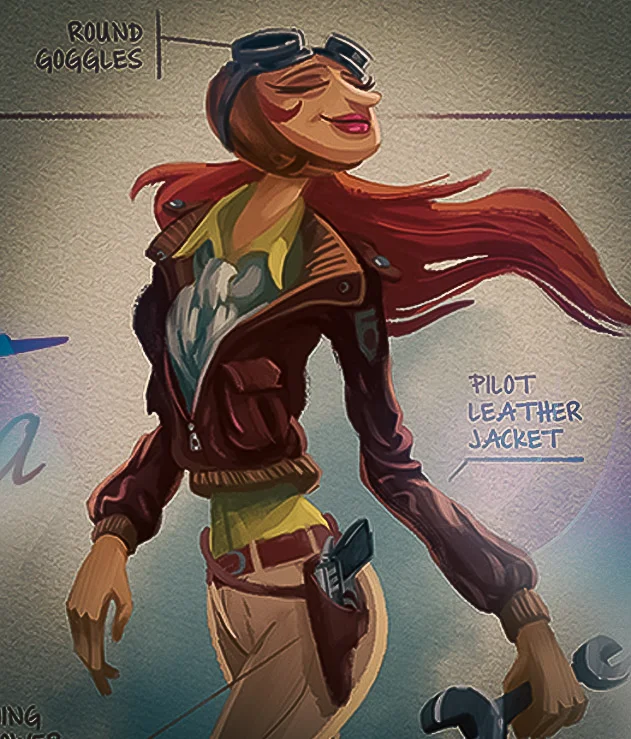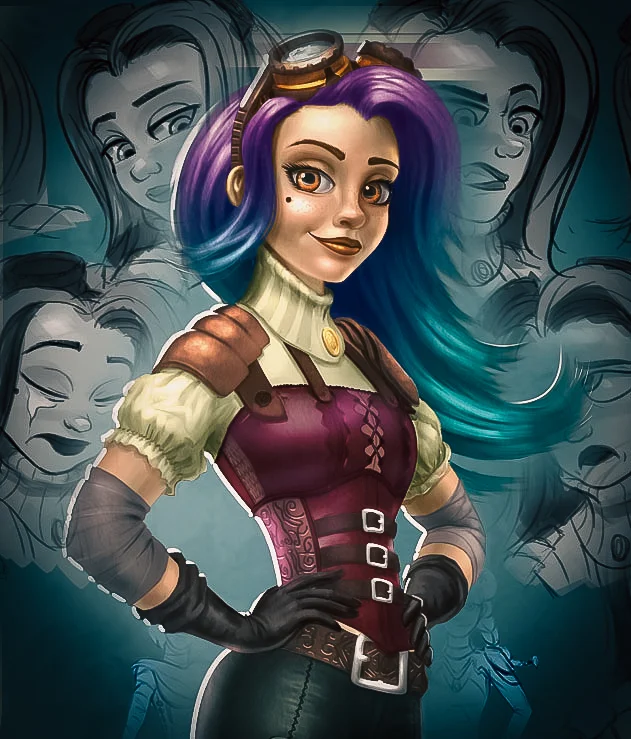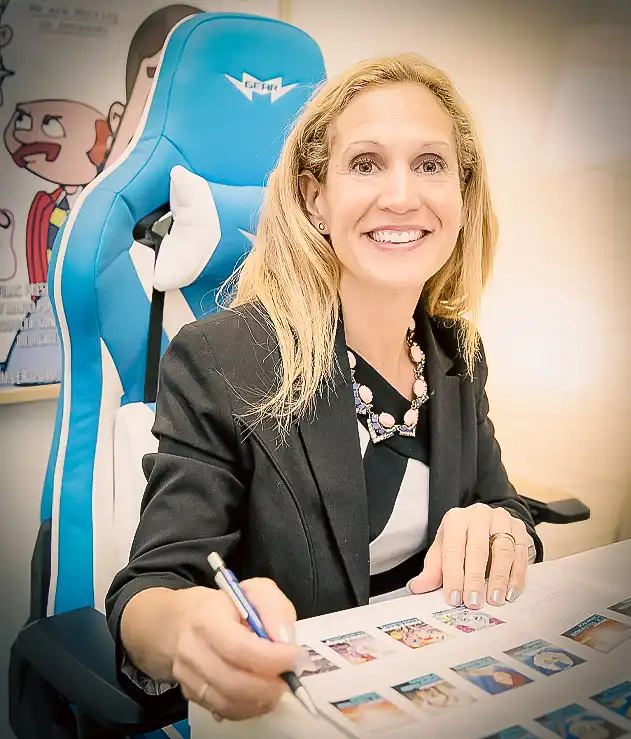 Image: Olivier Le Moal (Adobe Stock)
Image: Olivier Le Moal (Adobe Stock)
Author: VANAS
Should Digital Artists Specialize or Generalize?
In the world of digital arts, aspiring artists often face a crucial decision: should they specialize in a specific area or remain generalists with a broader skill set? This choice can significantly impact their career trajectory, job opportunities, and overall satisfaction in the field.
For students considering a career in digital arts, VANAS Online Animation School offers comprehensive programs in Animation, Visual Effects, and Video Games at VANAS to launch your career.
What Does It Mean to Be a Generalist?
A generalist in the digital arts industry is someone who works across many aspects of production. Generalists possess a wide range of skills that allow them to handle various tasks, from modeling and texturing to animation and lighting. This versatility can be highly valuable, especially in smaller studios where resources are limited, and team members are required to wear multiple hats.
Example Skills of a Generalist:
- Modeling: Creating 3D models of characters, environments, and objects.
- Texturing: Applying surface textures to 3D models to give them color and detail.
- Animation: Bringing characters and objects to life through movement.
- Lighting: Setting up lights in a scene to create mood and realism.
- Compositing: Combining visual elements from separate sources to create a final image.
What Does It Mean to Specialize?
On the other hand, a focused or specialized artist hones their skills in one specific area of production. This means becoming an expert in a particular domain, such as character animation, environment modeling, or visual effects. Specialized artists often have a deeper understanding and a higher skill level in their chosen field, making them indispensable for certain roles in larger studios.
Example Skills of a Specialist:
- Character Animation: Expertise in animating lifelike character movements and expressions.
- Environment Modeling: Specializing in creating detailed and realistic environments.
- Visual Effects (VFX): Mastery in creating realistic effects such as explosions, water simulations, and particle effects.
- Rigging: Developing skeletons for 3D models to enable animation.
- Concept Art: Creating original designs and visual representations of characters, environments, and scenes.
Why Studios Hire Generalists?
Generalists are typically in demand at smaller studios with lower budgets. These studios often cannot afford to hire many specialized artists, so they rely on the flexibility and wide-ranging skills of generalists to cover multiple roles. Examples of such studios include indie game developers, smaller animation houses, and boutique VFX firms.
Studios that Hire Generalists:
- Indie Game Studios: Smaller teams that need versatile artists who can contribute to various aspects of game development.
- Boutique Animation Studios: Studios that handle a variety of projects with limited staff, requiring generalists to manage multiple tasks.
- Startup VFX Companies: Emerging companies that benefit from having artists who can handle diverse roles in visual effects production.
Why Studios Hire Specialized Artists?
In contrast, larger studios with bigger budgets often seek specialized artists. These studios, such as Pixar, Disney, and Microsoft, have the resources to hire experts in specific fields. Specialization allows these studios to achieve the highest level of quality in each aspect of production, ensuring that every detail is meticulously crafted by someone who excels in that particular area.
Studios that Hire Specialists:
- Pixar: Known for its detailed character animation and storytelling, Pixar hires specialists in various domains to maintain its high standards.
- Disney: As a leader in animation, Disney employs specialized artists to create its iconic movies and series.
- Microsoft: In the gaming industry, Microsoft hires experts in game design, visual effects, and character modeling to develop cutting-edge games.
- DreamWorks: Another animation giant that requires specialists to deliver high-quality animated features.
- Industrial Light & Magic (ILM): A premier VFX studio that demands top-tier talent in visual effects and CGI.
Advantages and Disadvantages of Focusing or Generalizing
Both focusing and generalizing come with their own sets of advantages and disadvantages. It's essential for digital artists to weigh these factors based on their career goals, interests, and the type of work environment they thrive in.
Advantages of Being a Generalist:
- Versatility: Ability to work on various aspects of a project, making you a valuable asset in smaller studios.
- Job Flexibility: More opportunities across different types of projects and roles.
- Broad Skill Set: Gaining experience in multiple areas can be rewarding and prevent burnout from repetitive tasks.
Disadvantages of Being a Generalist:
- Jack of All Trades, Master of None: Risk of not being highly skilled in one specific area.
- Competitive Market: May face competition from specialists who are experts in particular fields.
Advantages of Being a Specialist:
- Expertise: High level of skill in a specific area can make you indispensable for certain roles.
- Higher Demand: Larger studios often seek specialists, leading to potentially higher salaries and more prestigious projects.
- Career Advancement: Opportunities to become a leader or mentor in your specialized field.
Disadvantages of Being a Specialist:
- Limited Flexibility: Fewer opportunities to work on diverse tasks.
- Narrow Focus: Specializing in one area might lead to burnout if you lose interest in that specific domain.
- Dependency on Industry Trends: Demand for certain specializations can fluctuate with industry trends.
Frequently Asked Questions
Should I start as a generalist and then specialize?
Many artists start as generalists to explore different areas of digital arts. Once they discover their passion or strength, they may choose to specialize.
Are generalists less valuable than specialists?
Not necessarily. Generalists are highly valuable in smaller studios and startups where versatility is crucial. Specialists, on the other hand, are indispensable in larger studios with specific needs.
How can I decide whether to specialize or stay general?
Consider your interests, career goals, and the type of work environment you prefer. Gaining experience in both areas can also help you make an informed decision.
Can I switch from being a generalist to a specialist later in my career?
Yes, many artists transition from being generalists to specialists as they gain experience and discover their niche.
Is it possible to be both a generalist and a specialist?
While challenging, some artists manage to maintain a broad skill set while excelling in a specific area, making them highly versatile and valuable.
Key Takeaways
- Understanding Roles: Generalists work across multiple aspects of production, while specialists focus on one specific area.
- Studio Preferences: Smaller studios typically hire generalists, while larger studios seek specialized artists.
- Career Path: Your choice should align with your interests, career goals, and preferred work environment.
- Advantages and Disadvantages: Weigh the pros and cons of both paths to determine which suits you best.
- Career Opportunities: VANAS Online Animation School offers programs in Animation, Visual Effects, and Video Games at VANAS to help you launch your career.
The decision to specialize or remain a generalist in digital arts is a personal one, influenced by individual interests, career aspirations, and the types of projects you wish to work on. Both paths offer unique opportunities and challenges, and understanding these can help you make an informed choice.
Whether you aim to be a versatile generalist or a focused specialist, there are rewarding careers waiting in the digital arts industry.
VANAS Online Animation School provides comprehensive programs in Animation, Visual Effects, and Video Games. Start your journey at VANAS to launch your career today.







